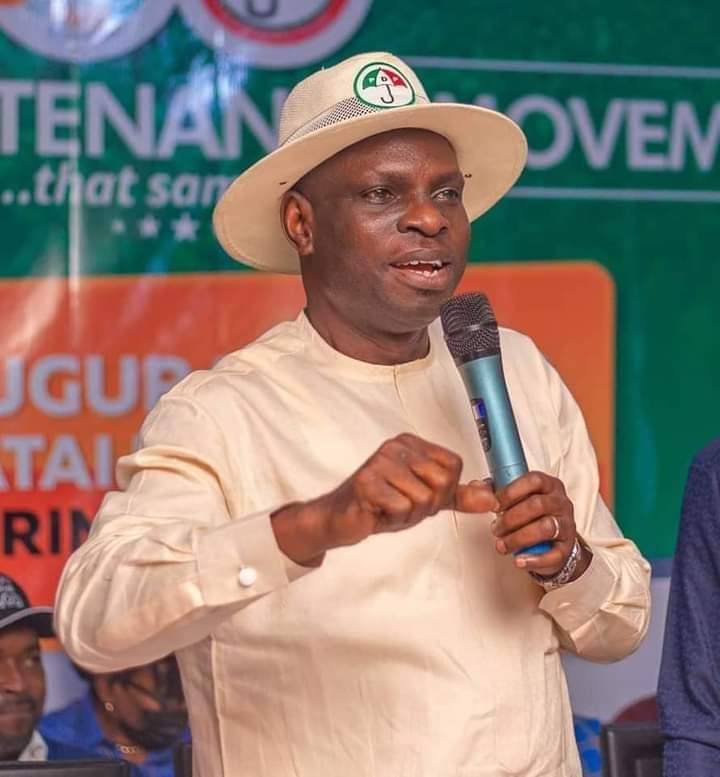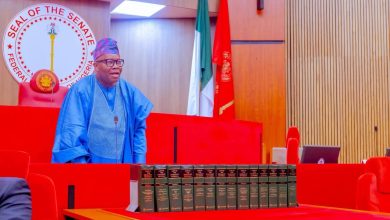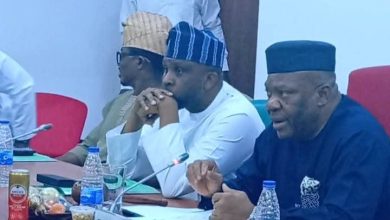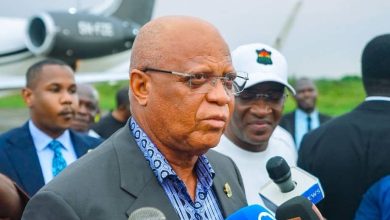
Leadership has never been an accidental discharge. Leadership is conspicuously conscious. It is something deliberate and takes a systematic approach. Leadership could most be considered on the prism of charismatic competence. In all situations, a leader must not be chosen in a hurry.
Let’s say that western education has greatly transformed many. From the creeks of the fishing settlements in the coastal communities, to the metropolitan cities like Uyo, Abak, Itu, Ibesikpo and perhaps Ikot Ekpene, Akwa Ibom citizens have become massively developed, educationally. The state is blessed with a wide array of intellectuals who can call the shots and stand for excellence in any field.
In other words, we may not be in want of a qualified leader. Most people are well qualified for the office of the Governor in 2023. Some of those jugging in the streets in readiness for the contest, cannot be ‘eliminated’ for being unqualified. They can only lose out for political factors. The reason is simple, political leadership must not be measured by more of other factors than political. By way of further explanation, other forms of leadership could be measured with different criteria. But political leadership is not strange to political considerations.
Hence, and particularly, zoning becomes that political factor that must not be treated with kid gloves. Naturally, and as registered earlier, since the office of a Governor is a political office, political interest becomes inevitable. There could be desperate desires by some of the people, seeking an opportunity to ‘serve’ in that capacity. This is what brings about assessment of candidates and the option of zoning.

Zoning simply refers to a situation in which a large area of land of a city is divided into parts for administrative convenience. It is the act of “partitioning a city, town, or borough into zones reserved for different purposes, for instance, for residence or business”, according to Merriam-Webster Dictionary. But in politics, zoning attains a distinct dimension of meaning. It refers to the process by which political offices are officially agreed to belong to a particular area. This is why an area could have the turn of producing a governor, while others take turns to produce candidates for other offices like deputy governor, speaker of parliament and the rest.
In Akwa Ibom State for instance, zoning cannot assume the subject of contention. It is a gentlemanly agreement which came to force immediately after the state was created. It could be recalled that the state, at creation, had 10 local government areas in 1987. An instance, in which the 10 Royal Fathers, one for each, gathered during a solemn assembly to commit the new state into God’s hands, cannot be forgotten. It would eternally remain in the minds of politically conscious persons. The Royal Fathers had agreed among themselves that political offices would be shared on the basis of ethnicity. This decision was further passed on to successive political leaders, including the ‘record-breaking’ Governor Godswill Obot Akpabio.
There are three major ethnic groups in the state: Ibibio, Annang and Oron. The two other ethnic zones are Ekid and the Obolo people. This early arrangement was to ensure the zoning of political offices to make it go round all sections of the state, so that privileged persons would not hold onto power in perpetuity. The state had further gained another dimension of zoning on the basis of Senatorial District. These include the Akwa Ibom North East (Uyo) Senatorial District, Akwa Ibom North West (Ikot Ekpene) Senatorial District and Akwa Ibom South (Eket) Senatorial District.
Related: The Akwa Ibom Zoning Question: Justice For Ibiono Ibom/Itu Federal Constituency
There is no contention that zoning has yielded enormous democratic dividends to the state. Apart from the exploration of leadership capacities in each of the regions, the zoning system makes it easy for power rotation. It all started when Obong Akpan Isemin (of blessed memory) assumed the office of the first democratically elected governor of the state. Akwa Ibom having been created during military rule by General Ibrahim Badamasi Babangida, it was only Commodore (Otuekong) Idongesit Nkanga (late) who had the fortune of serving the state as indigenous military administrator. Unfortunately, Obong Akpan Isemin could not administer the state for a full four year term, owing to the Abacha military disruption which unceremoniously terminated the tenure.
However, the modern democratic experience has witnessed a consistent zoning structure in the state. Interestingly, it appears that divinity was particularly involved in the selection process of the first governor in 1999. In this order, Arc Victor Attah became the first governor. Attah is from Ibesikpo/Asutan Local Government Area in Uyo Federal Constituency, under the Akwa Ibom North East Senatorial District. The gains of that administration cannot be quantified. It retains itself as a perfect development foundation for successive administrations. Favoured with advancement in age, training and experience as an architect, Obong Attah transformed the landscape of the state into a tourist site. His visionary leadership and foundational approach makes the state what it is today.
In 2007, Obong Victor Attah handed over the reigns of power to Mr Godswill Akpabio, now Minister of Niger Delta Affairs. Godswill Akpabio is a native of Ukana in Essien Udim Local Government Area of Akwa Ibom North West Senatorial District. He finished his tenure in 2015 and handed over to Governor Udom Gabriel Emmanuel whose eight years would elapse by 2023. Udom is a native of Awa Iman in ONNA Local Government Area of Akwa Ibom South Senatorial District.
Unlike the case of Attah who made sure an Annang man from Ikot Ekpene Senatorial District was elected as his successor, Godswill Akpabio personally ensured that an Ibibio man from Eket Senatorial District took over from him. As some people would say, Akpabio had killed three birds with just a stone. Firstly, he succeeded to handing over to someone from Eket Senatorial District, which by right, had the turn to govern the state. Secondly, Godswill Akpabio succeeded to meeting his ‘political oath’ with the Ibibios whom he promised to hand over to, when his second term bid in 2011 became tough. Thirdly, Udom Emmanuel became the ‘perfect’ Deal-man, the “Real Deal”, whom they said had the know-how as a financial expert to close all financial gaps left behind by Mr Akpabio. All these go to show that Akpabio was a first-class strategist.
Although prominent persons including Ambassador Assam Assam, SAN, kept saying that Akpabio left behind a huge debt profile, Mr Integrity sustained the denial. In various fora when journalists inquired information in that regard, Mr Udom Emmanuel kept the “Deal” very close to his chest. It was until 48 hours to his second term election, during a press chat on all Radio and TV stations in the state, that Mr Emmanuel admitted inheriting debt. In his words, the governor had said, “Senator Akpabio left behind a huge debt burden on me.”
In June 2020, the former Member of Eket Federal Constituency, Hon. Eseme Eyiboh stirred the political atmosphere with his zoning note. He stated that the cycle of zoning was completed, as all the three Senatorial Districts had taken their turns to produce a governor. In his opinion, all Senatorial Districts were qualified to vie for the office in 2023, as none should be favoured with the first slot, while others must always wait. This pontification triggered a wide array of reactions from who is who in the state. While a few people appeared to have supported the opinion, many departed from the school of thought, saying the order of governorship rotation must not be disrupted. Among the prominent thinkers were Arc Otu Ita Toyo, Senator Effiong Bob, Prof. Ini Udoka, Emmanuel Isangidoho Esq, Rt. Hon. Onofiok Luke, among many others.
Read Also: 2023: Senator OBA, PDP And The Greek Loyalty
Question is, why did they react against the statement that anyone from anywhere in the state can succeed Governor Udom Emmanuel? In the projection of the erstwhile spokesperson of the House of Representatives, someone from ONNA LGA, the home local government of the sitting governor is qualified to vie for the office. This implies that an Eket Senatorial District person could as well contest for the 2023 election without any hindrance. But for those speaking against it, they saw such an arrangement as unfair, and capable of causing chaos. Hence, they insisted that it must be an Uyo Senatorial District person.
However, an elder statesman from Oro extraction, Ikpoto Okon Osung believes that the present zoning template be completely dismantled. His fear is that the Ibibio ethnic majority, having been naturally spread in the three Senatorial Districts, can chose to hold-on to power till eternity. Okon Osung proposed that a new zoning template be embraced. According to him, the state should be divided into just two political zones, A and B. He opines that all Ibibio speaking LGAs found in all the three Senatorial Districts should belong to Zone A, while all the ethnic minorities be compounded into Zone B. The Zone B, as he said, should contain the Annangs, Oronians, Ekid people and the Obolos. Ikpoto Okon Osung pointed out that the new zoning will ensure that Ibibio people would govern the state for eight year and after every eight years. This further implies that while the 14 Ibibio speaking LGAs would choose their own governor in every eight years, the Zone B could then rotate their own turns around the sub-minorities.
Obviously, this reflection is logical considering the fact that the Ibibio has been governor in Eket Senatorial District where they have three LGAs, out of 12. The same thing therefore could be obtainable in Ikot Ekpene Senatorial District where there are two Ibibio LGAs. But when will Akwa Ibom people come together, to consider the merits of this zoning formula? While that is yet to happen, wisdom requires rational minds to maintain the status quo ante.
To tie it up, one becomes curious why political leaders can’t accept that the zoning postulation by Eseme Eyiboh should stand. Afterall, all seasons of elections have always witnessed people from ‘unfavourable’ Senatorial Districts throwing up themselves for the top job.
Apparently, the purpose of zoning is to ensure fairness and equity to all groups of persons in the society. Of course, none is strange to the overwhelming disadvantage of working against the idea of zoning. To conclude therefore, the vital question is, must the 2023 governorship be zoned to Akwa Ibom North East (Uyo) Senatorial District? Why is it important that it must be so? The possible answer is that the district left the governorship throne 16 years ago in 2007.
Having found that answer, the next question is, which of the three Federal Constituencies in Uyo Senatorial District deserve a shot at the Hilltop Mansion in 2023? The state, we agree, was berthed in 1987. Obong Akpan Isemin was the first civilian governor from Etinan Federal Constituency. Obong Victor Attah from Uyo Federal Constituency served from 1999 to 2007. The only area left to take a turn is the Itu/Ibiono Federal Constituency.
Therefore, to amicably and very conscientiously settle the zoning question regarding the 2023 governorship seat in the state, all hands must be on deck in support of Itu/Ibiono Federal Constituency. This is justice. This is political correctness. To think otherwise is to deny the overwhelming merit of zoning.




